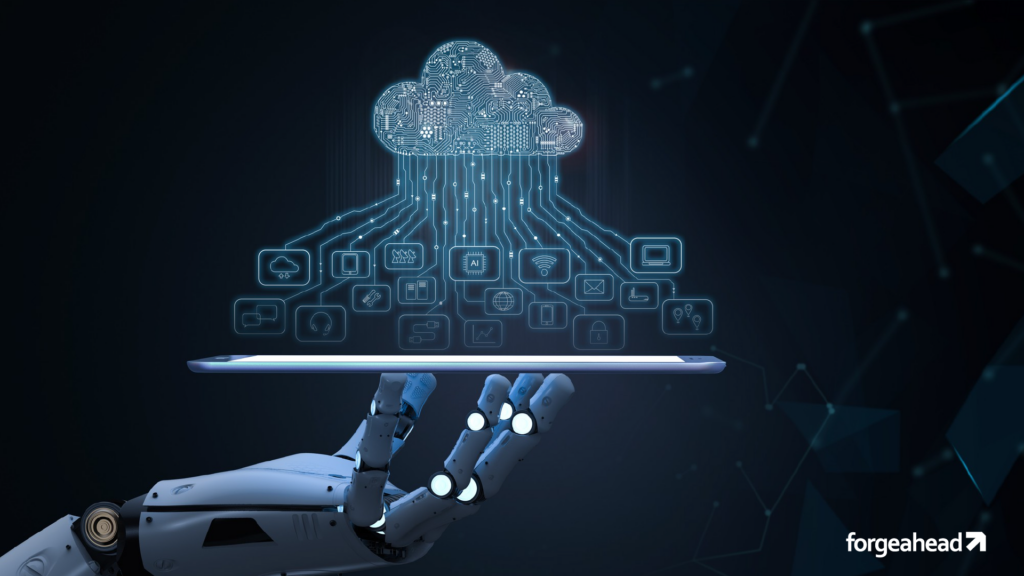Last updated on October 21st, 2024
What if your IT system could predict problems before they happen?
Imagine this: Instead of your team scrambling to fix an unexpected outage, your system automatically flags the issue, diagnoses the root cause, and even triggers an automated response—all while you focus on strategic priorities.
Sounds like a dream, right?
This is the power of AIOps for IT Operations. Gone are the days of manual monitoring and firefighting.
This blog explores how AIOps transforms incident management into a seamless, real-time operation, keeping your systems reliable and your team stress-free.
What is AIOps?
AIOps stands for Artificial Intelligence for IT Operations. It combines AI, machine learning, data aggregation, event correlation, anomaly detection, and automation to enhance IT operations.

Key Components of AIOps:
- Data Aggregation: Collects data from multiple sources (logs, metrics, events) to build a unified view.
- Event Correlation: Links related incidents, helping identify root causes faster.
- Anomaly Detection: Uses machine learning to spot irregularities in real-time.
- Automation: Automates routine tasks like ticket creation and incident resolution.
- Predictive Insights: Recognizes patterns to predict system failures before they happen.
AIOps enables adaptive incident management, turning your reactive operations into proactive maintenance, which is crucial in today’s dynamic IT environments.
How AIOps Improves Incident Management
When it comes to incident management, time is money. How often has your team scrambled to respond to an alert, only to find it’s a false positive?
Here’s how AIOps changes the game:
- Incident Detection: AIOps analyzes data from various sources to identify anomalies in real-time. This results in fewer false alarms and faster responses. For instance, some organizations have reported an 80% decrease in noise, allowing IT teams to concentrate on critical issues more effectively.
- Incident Response: AIOps automates routine tasks like ticket creation and incident assignment. It streamlines communication, ensuring that everyone is on the same page. Imagine incidents being triaged and assigned within seconds, leading to a potential 40% reduction in response times.
- Incident Resolution: AIOps provides deep insights for root cause analysis, correlating data and past incidents to identify solutions faster. This capability has helped some companies achieve an average 50% reduction in Mean Time to Resolution (MTTR), significantly improving system reliability.
Enhancing System Reliability with AIOps
System reliability is crucial, especially when downtime can cost thousands of dollars. Here’s how AIOps strengthens system performance:
- Predictive Analytics: AIOps uses machine learning to predict potential failures by recognizing performance patterns. This allows IT teams to fix issues before they impact users, improving overall reliability. Recent data shows a 20% decrease in unplanned outages with AIOps implementation.
- Proactive Maintenance: By continuously monitoring and analyzing data, AIOps enables businesses to shift from reactive to proactive maintenance. This reduces downtime and enhances system stability, allowing for seamless operations.
- Resource Optimization: AIOps automates scaling decisions, ensuring optimal resource use. Whether it’s adjusting server loads or reallocating resources based on demand, AIOps keeps systems running smoothly, reducing operational costs.
A real-life case is Adobe, which deployed AIOps for their cloud services.
Adobe experienced a 70% reduction in alert noise, allowing their IT teams to focus on critical issues instead of being overwhelmed by irrelevant alerts.
This implementation also reduced manual intervention, freeing up staff to work on more strategic initiatives.
Challenges and Considerations in Adopting AIOps
| Aspect | Pros | Cons |
| Incident Detection | Real-time analysis reduces false alarms by up to 80% | Requires high-quality data to function effectively |
| Incident Response | Automates routine tasks, reducing response time by 40% | Initial setup and integration can be complex |
| Incident Resolution | Speeds up root cause analysis, cutting MTTR by 50% | May require upskilling IT teams in AI/ML concepts |
| System Reliability | Predicts potential failures, leading to fewer outages | Dependent on consistent data input for accuracy |
| Operational Costs | Reduces manual intervention, freeing up IT resources | Upfront investment in AIOps tools and training |
| Scalability | Scales easily with complex IT environments | Ongoing maintenance and tuning are necessary |
The Future of AIOps: What to Expect
AIOps is just getting started. Future advancements will bring even more automation, reducing the need for manual intervention.
- Automation 2.0: AIOps will soon be able to self-heal systems, automatically fixing issues without human input.
- Integration with DevOps: AIOps will further integrate with DevOps practices, ensuring smoother CI/CD pipelines and system reliability.
Ready to future-proof your IT operations? Embracing AIOps now sets the foundation for greater efficiency and uptime.
Ending Thoughts
AIOps for IT Operations isn’t just a trend; it’s the future of incident management automation.
By automating routine tasks, delivering predictive insights, and enhancing system reliability, AIOps is redefining IT operations.
Ready to take control of your IT challenges?
Discover how AIOps can future-proof your operations, reduce downtime, and optimize performance. Get in touch with Forgeahead today to start your AIOps journey!
FAQs
1. What is AIOps and how does it differ from traditional IT operations?
AIOps (Artificial Intelligence for IT Operations) leverages AI and machine learning to automate and enhance IT operations. Unlike traditional IT operations that rely on manual monitoring and reactive measures, AIOps provides real-time data analysis, predictive insights, and automated responses.
2. How does AIOps help reduce incident response times?
AIOps detects anomalies in real-time, automates routine tasks like ticket creation, and quickly identifies root causes. This streamlined process allows IT teams to respond faster, reducing incident response times by up to 40%.
3. What are the key benefits of AIOps in improving system reliability?
AIOps improves system reliability by predicting potential failures, enabling proactive maintenance, and reducing unplanned outages. It also optimizes resource allocation, ensuring systems run efficiently and without disruption.
4. What challenges do companies face when adopting AIOps?
Companies often face challenges like data integration complexity, skill gaps in AI and IT operations, and the need for a cultural shift toward automation. However, starting small and scaling gradually can mitigate these obstacles.
5. How does AIOps integrate with existing IT operations?
AIOps seamlessly integrates with IT Service Management (ITSM) tools and monitoring systems. It pulls data from various sources, correlates events, and provides actionable insights, enhancing the efficiency of existing IT operations.
6. What is the future of AIOps in IT management?
The future of AIOps involves more advanced automation, including self-healing systems and deeper integration with DevOps practices. It will continue to evolve, providing even greater operational efficiency and system reliability.



